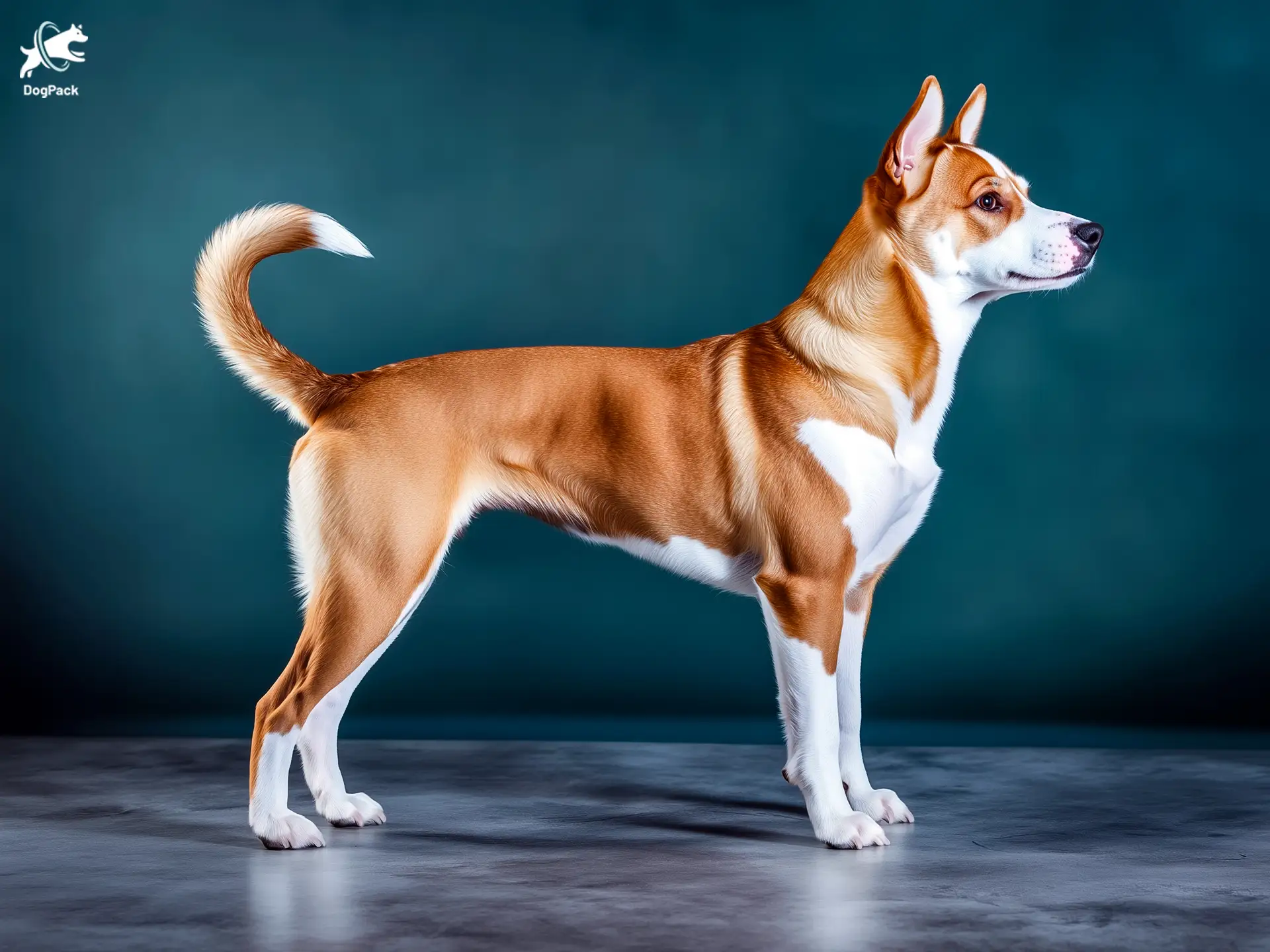Askal Dog Breed Info & Overview
The Askal, also known as the Aspin, is a native Filipino breed with a rich history of loyalty and resilience. Once considered street dogs, these intelligent and adaptable companions are now beloved family members across the Philippines. Their diverse appearances and strong, hearty nature make them stand out among breeds. Whether for their playful personalities or their protective instincts, the Askal proves to be a devoted and affectionate companion for any home.
Characteristics
Pictures
Breed History
The Askal, also known as the Aspin, has a rich history intertwined with Filipino culture. For centuries, these dogs roamed freely in rural villages and urban streets, adapting to various environments. Their name “Askal” comes from “Asong Kalye,” which means “street dog” in Tagalog.
Unlike many breeds with controlled breeding programs, Askals evolved naturally without human intervention. This natural selection made them resilient and versatile, capable of surviving in diverse conditions. They were often companions to farmers and fishermen, providing both protection and companionship.
Recently, there’s been a growing movement in the Philippines to recognize the Askal as a legitimate breed. Efforts are underway to promote their adoption and appreciate their unique qualities. The Philippine Animal Welfare Society (PAWS) even coined the term “Aspin,” short for “Asong Pinoy” or “Filipino dog,” to uplift their status.
Temperament, Personality
Askals are known for their intelligence and adaptability. Having survived in various environments, they’ve developed keen problem-solving skills. They’re quick learners and can adjust to new situations with ease.
These dogs are incredibly loyal to their families. Once they bond with their owners, they form deep attachments. They can be protective of their home, making them good watchdogs.
With proper socialization, Askals get along well with children and other pets. Their friendly nature shines when they feel secure. However, early training is essential to ensure they develop positive behaviors.
Physical Characteristics
Due to their mixed heritage, Askals come in various shapes and sizes. Generally, they are medium-sized dogs with lean, muscular builds. Their appearance can vary widely, making each one unique.
They often have short to medium-length coats, which can be any color or pattern. Common coat colors include brown, black, white, and combinations thereof. Their ears can be erect or floppy, and tails are usually medium in length.
One distinctive feature is their expressive eyes, which often reflect their intelligence and alertness. Their physical adaptability is a testament to their survival instincts honed over generations.
Health Issues
Askals are generally healthy due to natural selection favoring robust dogs. However, they can be prone to common canine ailments like skin conditions or parasites, especially if not properly cared for.
Regular veterinary check-ups are essential to monitor their health. Vaccinations, deworming, and flea prevention should be maintained to ensure they stay healthy.
While they don’t have breed-specific genetic disorders, their health can be compromised by environmental factors. Proper nutrition and a clean living environment contribute significantly to their well-being.
Grooming Needs
Askals have low grooming requirements due to their short to medium-length coats. A weekly brushing is usually sufficient to keep their coat healthy and shiny.
Bathing can be done as needed, typically once a month, unless they get into something messy. Their nails should be trimmed regularly to prevent overgrowth.
Regular dental care is also important. Brushing their teeth several times a week can help prevent dental diseases. Ear checks should be part of the routine to avoid infections.
Exercise Requirements
These dogs have moderate to high energy levels and enjoy daily activities. A daily walk of at least an hour helps keep them fit and mentally stimulated.
Askals love exploring their surroundings, so activities like hiking or playing fetch are great options. They thrive when given tasks or challenges.
Providing them with toys and interactive games can also keep them engaged. Mental stimulation is just as important as physical exercise for this intelligent breed.
Training Tips
Training an Askal requires patience and positive reinforcement. They respond well to reward-based methods and can learn commands quickly.
Consistency is key. Establishing a routine helps them understand expectations. Early socialization with people and other animals is crucial.
Avoid harsh training methods, as they can be sensitive. Building trust through gentle guidance will yield the best results.
Nutrition, Diet
Askals benefit from a balanced diet rich in protein to support their active lifestyle. High-quality dog food formulated for medium-sized breeds is recommended.
Portion sizes depend on their age, weight, and activity level. Typically, they require about 2 to 3 cups of food per day, split into two meals.
Monitoring their weight is important to prevent obesity. Fresh water should always be available, and table scraps should be given sparingly, if at all.
Adoption, Breeders
Many Askals are available for adoption in shelters across the Philippines. Adopting one provides a loving home to a deserving dog.
Reputable organizations like the Philippine Animal Welfare Society (PAWS) offer adoption services. They can provide guidance on caring for an Askal.
If you’re outside the Philippines, check with local rescue groups that focus on international adoptions. Ensure all legal requirements for importation are met.
Family Pet?
Askals make excellent family pets when properly socialized. Their affectionate nature endears them to family members of all ages.
They tend to be patient with children and can form strong bonds. Supervision is always recommended when introducing any dog to young kids.
With other pets, early introduction and socialization are important. Askals can coexist peacefully with other animals when raised together.
Right For You?
If you’re looking for a loyal, intelligent companion, the Askal might be the perfect match. They thrive in homes where they receive attention and exercise.
Consider your lifestyle before adopting. They do best with active owners who can meet their physical and mental needs.
Providing a loving home to an Askal can be incredibly rewarding. Their gratitude and affection make them wonderful companions.
Conclusion
Embracing an Askal into your life means welcoming a resilient and loving companion. Their unique blend of intelligence and loyalty makes them stand out. If you’re ready for an active, affectionate dog, the Askal could be the perfect addition to your family.
FAQs
-
Are Askals good guard dogs?
Yes, Askals can be good guard dogs due to their protective instincts. They are alert and attentive to their surroundings, which makes them effective at notifying owners of any unusual activity.
-
How long do Askals live?
Askals typically have a lifespan of 10 to 14 years. Proper care, including a balanced diet and regular veterinary check-ups, can help ensure they live a long and healthy life.
-
Do Askals get along with other dogs?
With proper socialization, Askals can get along well with other dogs. Early exposure to different animals helps them develop positive interactions and reduces territorial behavior.
-
Are Askals easy to train?
Askals are intelligent and can be easy to train with patience and consistency. Using positive reinforcement techniques works best to motivate them and reinforce good behavior.
-
What is the origin of the Askal breed?
The Askal originates from the Philippines, where they evolved naturally without human intervention. They are native dogs that have adapted over time to various environments across the country.
Breed Ratings
Askals are smart and quick learners, especially when motivated by positive reinforcement and consistent training.
They enjoy playtime and can be quite playful, making them great companions for interactive games and activities.
With moderate to high energy, Askals need daily exercise to stay fit and mentally stimulated.
Shedding is moderate; regular brushing helps manage loose hair and keeps their coat healthy.
They may have a moderate prey drive due to their natural instincts, so caution is advised around small animals.
Grooming is straightforward with low maintenance needs, making coat care manageable for most owners.
Their intelligence and eagerness to please make them fairly easy to train with consistent methods.
They prefer company but can tolerate being alone for moderate periods if properly trained.
Barking is moderate; they may alert bark but aren’t typically excessive unless bored or untrained.
Drooling is minimal, which is good news for owners who prefer a tidier home environment.
With proper socialization, Askals are generally friendly toward other dogs and enjoy canine companionship.
They are generally healthy dogs with robust constitutions due to natural selection over generations.













